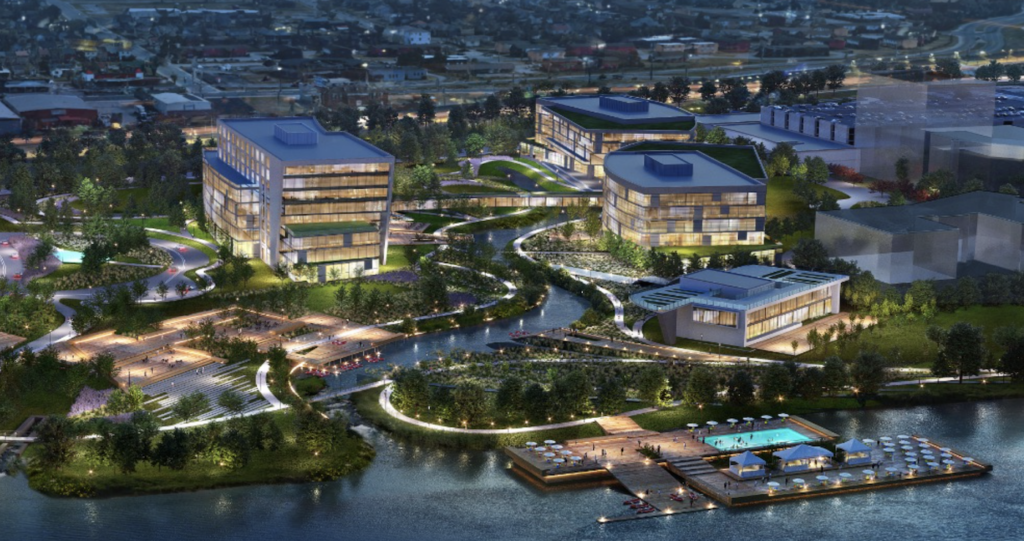
During last week’s State of Metro address, Mayor John Cooper centered the city’s post-pandemic growth on Fortune 100 tech company Oracle creating a hub in Nashville.
“It gives our kids a path for success in the digital economy. All with no expense in our budget. And no new debt,” the mayor said. “With our partners at Oracle, we’re demonstrating how the right deals can be made for our city.”
On Tuesday night, the city council agreed and gave its approval. And there wasn’t one councilmember who voted against the deal.
Oracle will construct 1.2 million square feet of office space, with parking and other facilities at the River North campus. By the end of 2027, the company is expecting to create around 2,500 jobs with an average salary of $110,000.
The tech company will front $175 million for public infrastructure. Those projects include redevelopment of an old city landfill, a new riverfront park and a pedestrian bridge over the Cumberland River that’s meant to connect the rapidly redeveloping River North to the long-established Germantown neighborhood. The city will effectively repay half of that construction cost using new property tax revenue that the project creates.
Mike Jameson, the mayor’s director of legislative affairs, says doing the deal this way saves the city a little less than $50 million.
But the city isn’t out of the woods with making investments. There isn’t a design for the campus, so the final costs of the project are uncertain.
“The agreement is to remain silent about who pays for anything over $175 million,” Councilmember Bob Mendes says.
The deal is supposed to end when the city repays its share, or in the year 2046, whichever comes first.
Councilmember Colby Sledge acknowledged the deal was headed toward passage before making an analogy about accountability: “We will have invited the horse in. We will have attracted the horse. But for it to be useful to the people of Nashville it will take all of us working together to tame the horse,” he says.
Metro has been working on the Oracle deal for more than two years.
Based on the mayor’s speech and the 29 co-sponsors on the resolution it was clear before Tuesday night that the deal would pass. That’s despite Stand Up Nashville and the Equity Alliance asking the city to slow down so residents could weigh in.
“It is great that Oracle is willing to invest capital up front that they will have paid back, but who decided how those funds would be used?” Stand Up Nashville Executive Director Odessa Kelly wrote in a statement. “After hearing the Oracle presentation at Metro Council, it seems clear the choices were made by Oracle. While the public will have access to these things (green space, pedestrian bridge), which is great, the public did not decide those things were the priority.”
Kelly raises concerns about how this project will impact rising housing costs and whether contractors will pay equitable wages and provide safe conditions.
On Tuesday, councilmembers said they want half of property taxes from the project to go to affordable housing. That isn’t binding, since the city has to figure out how to spend its money each year.
“Affordable housing is the No. 1 thing we need to think about going forward,” Councilmember Tom Cash says. “8 [or] 10 years from now, when most of the employees would be here we don’t know for sure what we need the money for. It might be our housing situation is improved and we need more schools.”
He still voted for the measure because he wanted to go on the record saying that housing affordability is a priority.
When the mayor was a councilmember, he was a critic of corporate incentives. But the new Oracle deal isn’t quite a “gotcha” moment, as he said he’d be OK with making deals when they are similar to the size of Amazon’s 2019 announcement. Amazon is in the process of building two towers with plans to hire 5,000 — the Oracle deal entails more total jobs (8,500) and what officials say is a larger investment.

